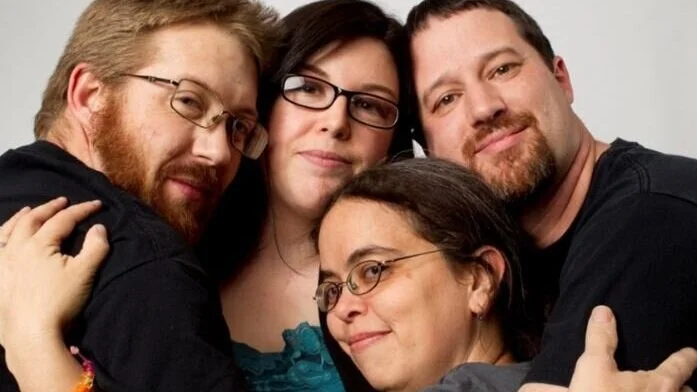CNM Webinar
CONSENSUAL NON-MONOGAMY: COMPREHENSIVE ASSESSMENT AND INTERVENTION with Indigo Stray Conger LMFT CST
View webinar preview here.
Sign up to attend the recorded webinar virtually here through the Denver Family Institute (DFI) webinars for mental health practitioners.
Webinar participants will earn 2 CE credits (NBCC, APA, AASECT available) in collaboration with Advanced Mental Health Training Institute.
This workshop will improve your competency in working with non-monogamous populations, including polyamorous relationships, swingers, “monogamish” couples and relationship anarchists. Well-meaning therapists often do damage by treating non-monogamous clients without an appropriate proficiency in boundary negotiation, trauma assessment and neurophysiological interventions for anxiety. Increased awareness around typical non-monogamous presentations will allow you to serve this growing client population with greater efficacy. Confidence in addressing and assessing open relationship styles will improve client retention rates and enhance client engagement in the therapeutic process.
Description
As consensual non-monogamy becomes more mainstream, you are likely to encounter clients in your practice who are either exploring how to open their relationship for the first time or who have incorporated non-monogamy as a foundation for their connection. Although plenty of literature is out there to guide people through the ethics of opening up, less information is available for clinicians hoping to help clients through the common issues that arise in non-monogamy. This workshop will introduce you to terminology and direct you towards basic resources. We will go over common presentations for non-monogamy in therapy and how to best facilitate typical client dilemmas. We will review how an attachment theory lens applies in open relationship models. We will develop skills around identifying when infidelity is masking as consensual non-monogamy or when entrenched power dynamics are at play. We will learn a vernacular for exploring healthy boundaries versus fear-based rules and contracts. We will discuss neurophysiological strategies for coping with anxiety which align with a trauma-informed approach. These skills can be integrated alongside any treatment model and will increase competency and confidence in working with non-monogamous populations.
Learning Objectives:
List at least 2 common presentations of non-monogamy in therapy and how to assess/address the accompanying client dilemmas.
Explain how to apply at least 2 neurophysiological interventions to increase relational security.
Indigo Stray Conger has been a therapist since 2008 and has had over a decade of professional training, including as one of the few AASECT certified sex therapists in the state of Colorado. She holds a Master’s Degree in Somatic Psychotherapy and incorporates her prior extensive experience as a yoga teacher and bodyworker when utilizing applied neuroscience and mindfulness interventions in her work. In her private practice, Mile High Psychotherapy LLC, Indigo specializes in working with non-heteronormative populations, including LGBTQIA, consensual non-mongamy and BDSM. She is frequently cited as a sexuality and open relationship expert in national publications, such as the New York Times, Healthline, Cosmopolitan, Self, Women’s Health, O.School, and Bustle Media. Indigo is a staff writer for ChoosingTherapy.com and reviews independently published books on the topics of sexuality, somatics and psychology for BlueInk Review.

